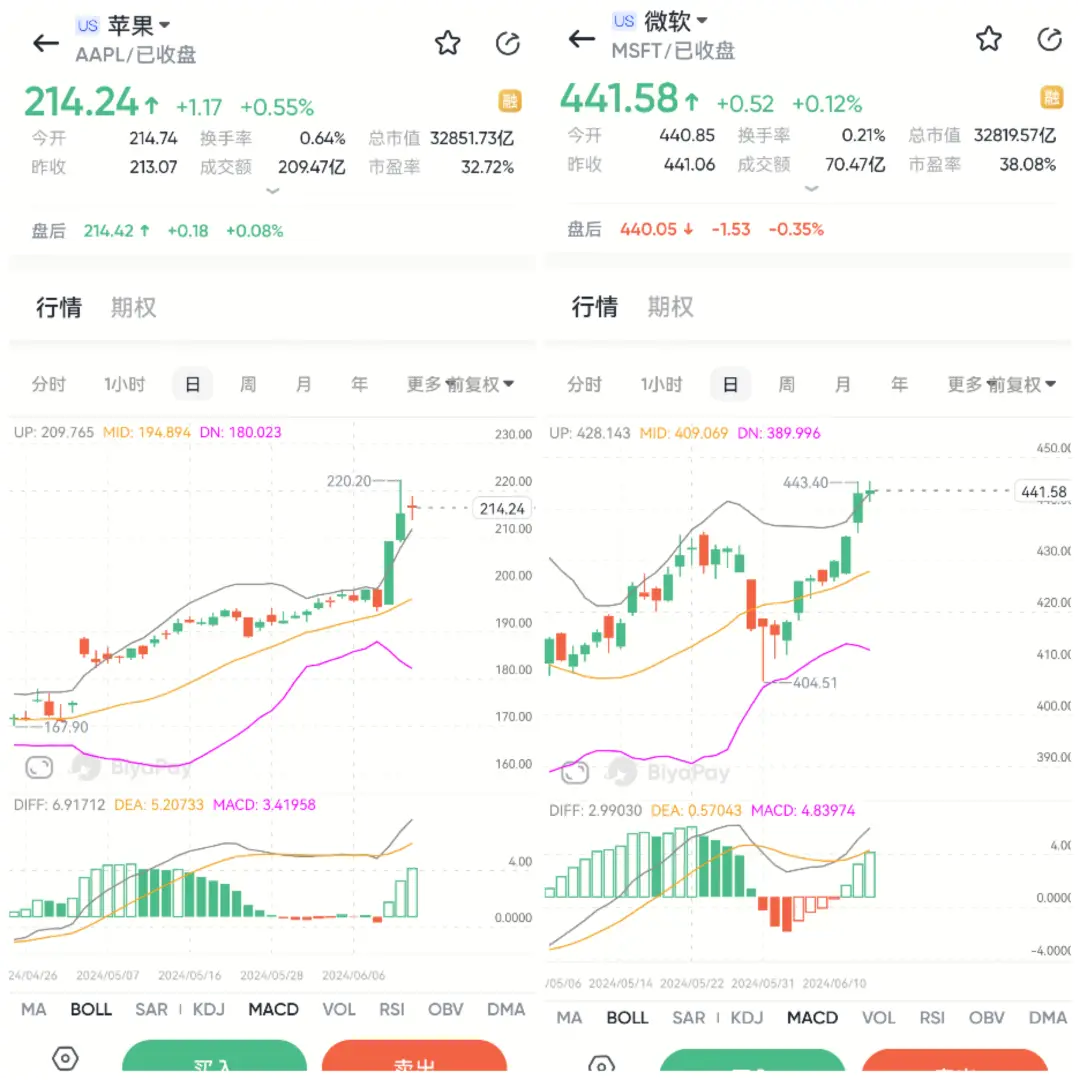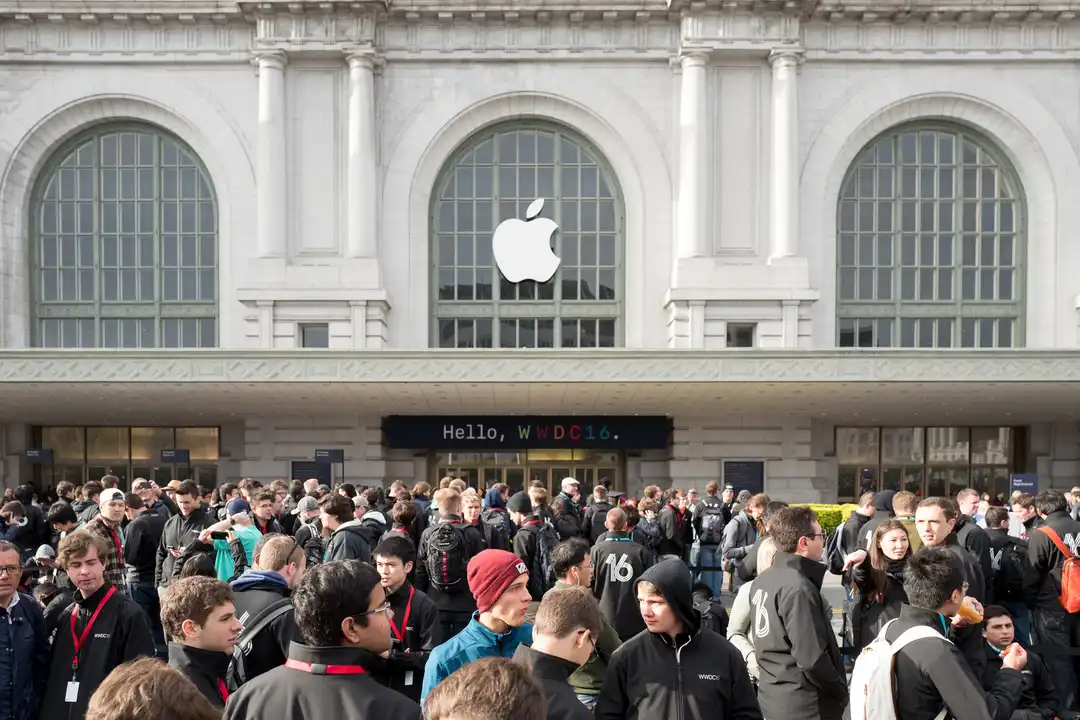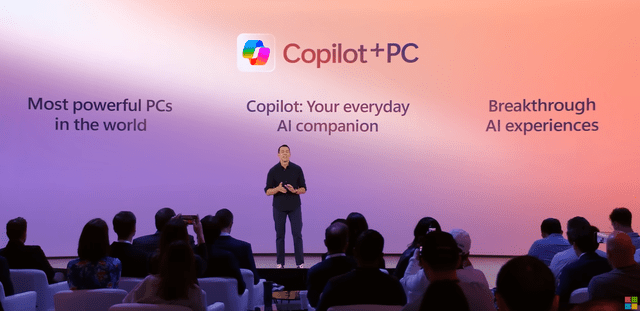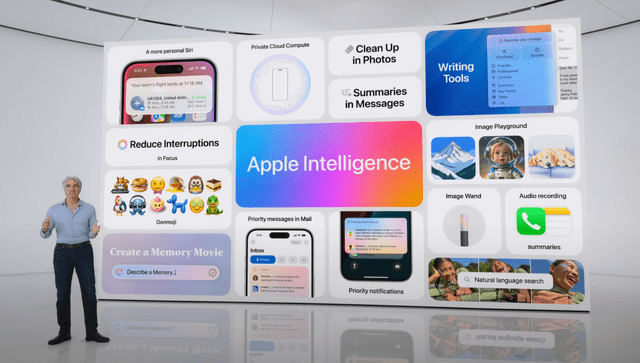- Remittance
- Exchange Rate
- Stock
- Events
- EasyCard
- More
- Download
With strong support from AI, Apple's market value has surpassed Microsoft
On June 13th, Eastern Time, after the U.S. stock market closed, Apple (AAPL) rose for the third consecutive day, surpassing Microsoft (MSFT) to become the top company in the U.S. stock market by market value, reclaiming the title of the world’s most valuable company. This indicates a renewed investor confidence in its growth and position in artificial intelligence, as competition in the AI field intens.

Recently, at the Worldwide Developers Conference, Apple unveiled its vision for generative artificial intelligence, marking a significant advancement in the AI field for the company.
Following a brief dip, its stock price has been on a continuous rise, reflecting the market’s positive expectations for its future. If you want to catch this wave, you can go to BiyaPay, search for the stock code on the platform, and trade in real-time online; or deposit cryptocurrency (USDT) into the multi-asset wallet BiyaPay and then withdraw fiat currency to Charles Schwab for investing in U.S. stocks.
Previously, Microsoft also revealed a similar vision at the Build Developer Conference and the launch event for the new Copilot+ PC. The focus of the two companies differs; Microsoft’s AI emphasis remains on cloud computing. The company has already invested heavily in this area and can leverage the work of its partner OpenAI. In contrast, Apple is forging its own path in AI, intending to infuse useful intelligence into its platform, primarily existing on the devices.

The artificial intelligence race is intensifying
ChatGPT, launched at the end of 2022, is like a hydrogen bomb exploding in the world of personal computers. Finally, there is an AI that can communicate with it through text input. It seems to be really smart and knowledgeable.
The computing resources required to train Generative Pre-Training Transformer (GPT) AI are enormous and expanding. Nvidia (NVDA) is in a favorable position to provide the necessary computing hardware. At least for now, it is still the company that profits the most from GPT.
For major platform companies such as Apple and Microsoft, 2023 will be a year of experimentation as they try to understand the uses of GPT. Microsoft has launched GPT-based Copilot as a “preview version” in a large number of its software products.
Apple seems to be in a wait-and-see state. Since the launch of Face ID in iPhone X in 2017, it has only made moderate upgrades to the in-device AI. Since 2017, Apple has added a dedicated AI accelerator called Neural Engine to every iPhone processor and all M-series Apple Silicon Macs.
However, Apple’s in-device AI cannot run something like ChatGPT because it is cloud-based, and Apple’s AI expertise has been largely ignored or underestimated by media critics.
In the past year, both Microsoft and Apple have realized that GPT represents the next major advancement in computer User Interface. With proper training and implementation, GPT can become a computer.
The appeal of GPT as a computer interface is irresistible to both companies, and both companies are committed to giving their operating systems GPT-based User Interfaces.
In order for GPT to truly become a useful computer interface, it must be able to access various data about users, including usage history and personal information. This brings various privacy issues.
Apple’s challenge: Microsoft’s Copilot + PC
With its partnership with OpenAI and partial shareholding, Microsoft has taken the lead in GPT technology. It does not need to hire OpenAI to provide GPT technology, and can introduce this technology internally and adjust it according to its own needs
Microsoft may have started doing this a few years ago, since its first investment in OpenAI in 2019. As Microsoft increasingly recognizes the value of GPT as a computer User Interface, it has started introducing “Copilots” into its various software products.
Meanwhile, Microsoft has invested heavily in its Azure cloud infrastructure to support cloud-hosted GPT technology. Microsoft has become the exclusive cloud provider for OpenAI.
Hosting ChatGPT and physical computing needs similar to GPT naturally leverage Microsoft’s advantage in commercial Cloud as a Service. Even though Windows seems to be stagnant as a growth engine, cloud hosting of AI services will still drive Microsoft’s growth in 2023.
In addition, Microsoft realized that AI on devices requires hardware acceleration on PC processors, requiring that the processors of the new Copilot + PC must have neural processing units (NPUs) with specific AI computing capabilities.
However, the new hardware platform is the only way Microsoft can provide the unique features of Copilot + PC. The current configuration of Copilot + PC is simply a notebook computer with NPU processor driver.

Copilot + PC cannot be the most powerful PC in the world, and its so-called unique features can be achieved on almost any Windows desktop or laptop with an appropriate GPU.
This is how Microsoft chose to stimulate sales in a product category (ultra-lightweight laptops), but this category is increasingly overshadowed by Apple’s laptops and tablets with Apple Silicon.
Apple WWDC Launches Apple Intelligenc
The keynote speech at WWDC introduced Apple’s AI approach, called Apple Intelligence, which mainly features AI on devices. It utilizes Apple’s rich experience in its own neural engine. Since the A11 Bionic, the neural engine has been a feature of every Apple chip.
Apple emphasizes on in-device AI, which can better protect user privacy and security. By processing artificial intelligence (AI) tasks within the device, it can more effectively ensure user privacy and security, which constitutes its own advantage.
Apple Intelligenc also utilizes the shared memory architecture of the M-series chips of Apple Silicon Macs. As the GPU may access up to 128 GB of Memory Space (on the M3 Max), it can be used as a generative AI accelerator together with the neural engine.
And Apple is not trying to force hardware upgrades with the new features of Apple Intelligence. Apple Intelligence will be available on all Macs with M-series processors, all iPads with M-series processors, Vision Pro, and iPhone 15 Pro with A17 processors.
The functions of Apple Intelligence are very similar to those of Copilot + PC, and Apple announced that it will cooperate with OpenAI, which will further promote the development of artificial intelligence technology and bring users a more advanced experience.

Summary
With the increasingly fierce competition in artificial intelligence, Apple and Microsoft have different strategies and advantages for the development of artificial intelligence. Apple emphasizes the advantages of in-device AI through its AI strategy announced at its Worldwide Developers Conference, while Microsoft continues to rely on its powerful Cloud Service infrastructure and cooperation with OpenAI to strengthen its AI capabilities.
Nowadays, Apple has returned to the first place in market value, which also shows people’s confidence in the development of artificial intelligence. Although Microsoft has temporarily fallen behind, its future development potential cannot be ignored. Investors can continue to pay attention to their future development.

























